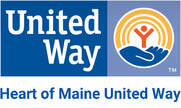Answers to Frequently Asked Questions
What is a Forensic Interview?
A forensic interview is an interview that uses open-ended questions to learn about something that may have happened to a child. The interviewer is well-trained and does not influence the child’s answers. The interview is appropriate for the child’s age and is used as part of an investigation.
What should I tell my child about going to the CAC?
Children are most comfortable when someone tells them what to expect. It is important to tell to your child that they will be meeting with someone to talk about what has happened to them. You can let your child know that the interviewer is a person who talks to many children. Do not tell your child what to say, but ask them to tell the truth. It may help to remind the child that they have done nothing wrong.
What happens next?
After the interview, the Penquis CAC will call you twice to follow-up: one week after the child's interview and again one month after to make sure the child and family have everything they need. The video of the child's interview will be given to the investigating officer because it is evidence. They will keep the video confidential and safe. The Penquis CAC will not keep a copy of the video.
What happens to the suspect?
The suspect may not be arrested right away. Many times the decision to charge the person or not is made together by the District Attorney's Office and investigators. However, safety issues will also be a part of this decision.
What should I do if my child discloses something else?
After a forensic interview, a child may remember or want to tell you more about what happened to them. If this happens, it is important to contact law enforcement or DHHS immediately.
How can I support my child?
Return to a normal routine as soon as possible.
Make sure your child receives therapy as soon as possible. Trying to sweep the problem under the rug usually causes more problems, because it won’t go away.
Find help for yourself. You don’t have to do this on your own. Contact the CAC for help.
Teach your child about personal safety. Please reach out to the Penquis CAC at 207-974-2469 for more help
Be careful not to question your child about the abuse. If your child wants to talk about it, listen supportively, but do not push them.
Keep your child away from the person suspected of the abuse. This is to protect the child, you, and the suspect.
Avoid talking about the case with other victims or their families.
Stay close and let your child know that you will keep them safe. Your child may be feeling insecure and need to be reminded that you will protect them.
Remember that your other children may have questions and need support.
A forensic interview is an interview that uses open-ended questions to learn about something that may have happened to a child. The interviewer is well-trained and does not influence the child’s answers. The interview is appropriate for the child’s age and is used as part of an investigation.
What should I tell my child about going to the CAC?
Children are most comfortable when someone tells them what to expect. It is important to tell to your child that they will be meeting with someone to talk about what has happened to them. You can let your child know that the interviewer is a person who talks to many children. Do not tell your child what to say, but ask them to tell the truth. It may help to remind the child that they have done nothing wrong.
What happens next?
After the interview, the Penquis CAC will call you twice to follow-up: one week after the child's interview and again one month after to make sure the child and family have everything they need. The video of the child's interview will be given to the investigating officer because it is evidence. They will keep the video confidential and safe. The Penquis CAC will not keep a copy of the video.
What happens to the suspect?
The suspect may not be arrested right away. Many times the decision to charge the person or not is made together by the District Attorney's Office and investigators. However, safety issues will also be a part of this decision.
What should I do if my child discloses something else?
After a forensic interview, a child may remember or want to tell you more about what happened to them. If this happens, it is important to contact law enforcement or DHHS immediately.
How can I support my child?
Return to a normal routine as soon as possible.
Make sure your child receives therapy as soon as possible. Trying to sweep the problem under the rug usually causes more problems, because it won’t go away.
Find help for yourself. You don’t have to do this on your own. Contact the CAC for help.
Teach your child about personal safety. Please reach out to the Penquis CAC at 207-974-2469 for more help
Be careful not to question your child about the abuse. If your child wants to talk about it, listen supportively, but do not push them.
Keep your child away from the person suspected of the abuse. This is to protect the child, you, and the suspect.
Avoid talking about the case with other victims or their families.
Stay close and let your child know that you will keep them safe. Your child may be feeling insecure and need to be reminded that you will protect them.
Remember that your other children may have questions and need support.
Parts of this content were developed with thanks to the Children's Advocacy Center of Kennebec and Somerset Counties, the Children's Advocacy Center of Suffolk County, and the National Children's Alliance.








